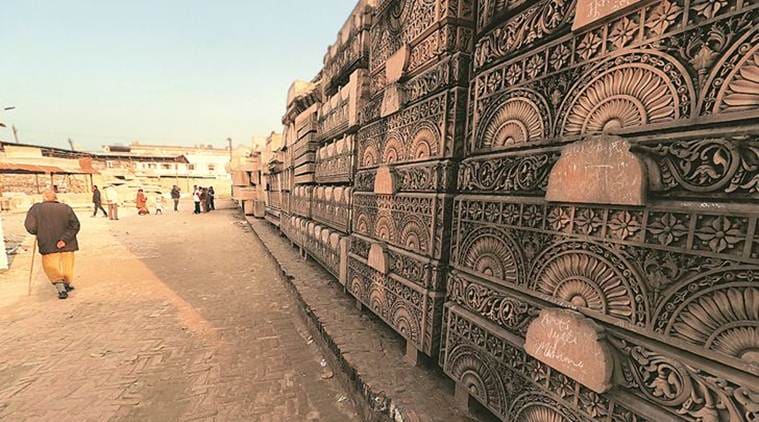
The Supreme Court will pronounce Friday its order on whether or not to refer the Ramjanmabhoomi-Babri Masjid dispute for mediation. On Wednesday, a five-judge Constitution Bench headed by Chief Justice of India Ranjan Gogoi reserved its order on the mediation issue saying it was “looking at hearts, minds and healing if possible”, and that a “negotiated settlement” was the “best way to restore peace”.
The bench, which also comprised Justices S A Bobde, D Y Chandrachud, Ashok Bhushan and S Abdul Nazeer, is hearing appeals against the September 30, 2010 verdict of the Allahabad High Court which ordered a three-way division of the disputed 2.77 acres of the Ram Janmabhoomi-Babri Masjid site in Ayodhya between the Nirmohi Akhara sect, the Sunni Central Wakf Board, Uttar Pradesh and Ramlalla Virajman.
The bench said it could only decide on the property and what it was looking at was “a possibility of healing relationships”. It sought the views of the parties involved, citing Section 89 of the Code of Civil Procedure.
Section 89 states: “Where it appears to the court that there exist elements of a settlement which may be acceptable to the parties, the court shall formulate the terms of settlement and give them to the parties for their observations and after receiving the observations of the parties, the court may reformulate the terms of a possible settlement and refer the same for (a) arbitration; (b) conciliation; (c) judicial settlement including settlement through Lok Adalat; or (d) mediation”.
Senior counsel Rajeev Dhavan, representing one of the appellants in favour of a mosque at the sire, backed the suggestion, but senior counsel C S Vaidyanathan, representing the deity Ramlalla Virajman, opposed this saying “these are matters of faith and non-justiciable. That it is the Ramjanmabhoomi cannot be subject to any compromise… What can best be done is to give alternate land for building a mosque. And we are willing to crowd fund it”. The bench said this could be raised during mediation.
Some of the parties were of the view that the suit being a representative one, there had to be consensus to refer it to mediation.
Vaidyanathan pointed out that negotiation had been attempted earlier by the Allahabad High Court but it had not worked. The suggestion did not find favour with the Uttar Pradesh government too with Solicitor General Tushar Mehta saying it was not advisable.
Reserving its order, the bench said that if there was to be mediation, it may ask the parties involved to suggest names of possible mediators.